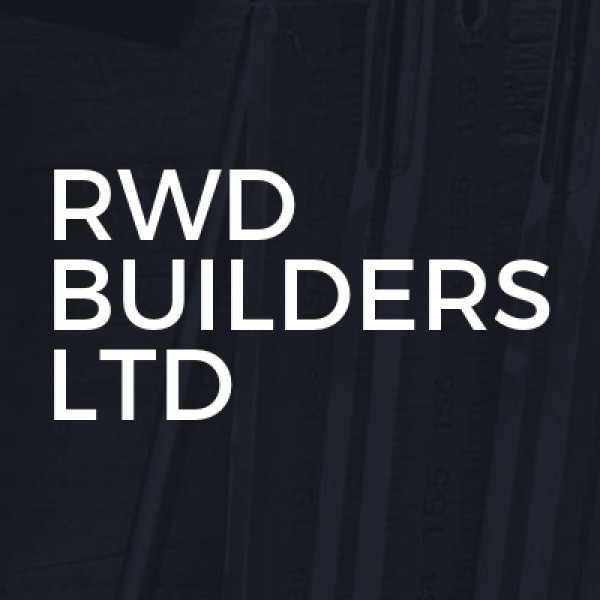Property Refurbishment in Newmarket
Filter your search
Post your job FREE and let trades come to you
Save time by filling out our simple job post form today and your job will be sent to trades in your area so you can sit back, relax and wait for available trades to contact you.
Post your job FREESearch Property Refurbishment in places nearby
Understanding Property Refurbishment in Newmarket
Property refurbishment in Newmarket is an exciting venture that can transform a tired building into a vibrant and valuable asset. Whether you're a homeowner looking to update your living space or an investor aiming to increase property value, understanding the ins and outs of refurbishment is crucial. This article explores the various aspects of property refurbishment, providing insights and guidance to help you navigate your project successfully.
The Importance of Property Refurbishment
Refurbishing a property can significantly enhance its aesthetic appeal and functionality. In Newmarket, a town rich in history and culture, maintaining the charm of older properties while modernising them is a common goal. Refurbishment not only improves the living conditions but also boosts the property's market value, making it a wise investment.
Planning Your Refurbishment Project
Before diving into a refurbishment project, careful planning is essential. Start by assessing the property's current condition and identifying areas that need improvement. Create a detailed plan that outlines your goals, budget, and timeline. Consulting with professionals such as architects and contractors can provide valuable insights and help you avoid costly mistakes.
Setting a Realistic Budget
One of the most critical aspects of planning is setting a realistic budget. Consider all potential costs, including materials, labour, permits, and unexpected expenses. It's wise to allocate a contingency fund for unforeseen issues that may arise during the refurbishment process.
Choosing the Right Professionals
Hiring the right professionals can make or break your refurbishment project. Look for experienced contractors and tradespeople with a proven track record in property refurbishment. Check references and reviews to ensure they have the skills and expertise needed to deliver quality work.
Key Areas of Focus in Property Refurbishment
When refurbishing a property, certain areas often require more attention than others. Here are some key areas to focus on:
Structural Repairs and Improvements
Addressing structural issues is paramount to ensure the property's safety and longevity. This may include repairing foundations, walls, roofs, and floors. Structural improvements can also involve enhancing insulation and energy efficiency, which can lead to long-term savings on utility bills.
Updating Electrical and Plumbing Systems
Outdated electrical and plumbing systems can pose safety hazards and lead to costly repairs if not addressed. Modernising these systems is a crucial step in any refurbishment project, ensuring they meet current safety standards and are efficient.
Enhancing Interior Design
Interior design plays a significant role in the overall appeal of a property. Consider updating fixtures, fittings, and finishes to create a modern and inviting space. Pay attention to lighting, colour schemes, and layout to maximise the property's potential.
Preserving Newmarket's Heritage
Newmarket is known for its historical architecture and cultural heritage. When refurbishing properties in this area, it's important to preserve these elements while incorporating modern amenities. This can involve restoring original features such as fireplaces, mouldings, and windows, which add character and charm to the property.
Environmental Considerations in Refurbishment
With growing awareness of environmental issues, incorporating sustainable practices into property refurbishment is becoming increasingly important. Consider using eco-friendly materials, improving energy efficiency, and reducing waste during the refurbishment process. These efforts not only benefit the environment but can also enhance the property's appeal to environmentally conscious buyers.
Energy Efficiency Upgrades
Improving energy efficiency is a key consideration in modern refurbishment projects. This can include installing energy-efficient windows, upgrading insulation, and using energy-saving appliances. Such upgrades can significantly reduce energy consumption and lower utility bills.
Utilising Sustainable Materials
Choosing sustainable materials is another way to minimise the environmental impact of your refurbishment project. Opt for materials that are recycled, renewable, or have a low carbon footprint. This not only supports environmental sustainability but can also add unique character to the property.
Navigating Legal and Regulatory Requirements
Property refurbishment in Newmarket, like in any other area, is subject to various legal and regulatory requirements. Understanding these requirements is essential to ensure your project complies with local laws and regulations.
Obtaining Necessary Permits
Before commencing any refurbishment work, it's important to obtain the necessary permits from local authorities. This may include planning permission, building permits, and other approvals depending on the scope of your project. Failing to secure the required permits can lead to fines and delays.
Adhering to Building Codes and Standards
Ensuring that your refurbishment project adheres to building codes and standards is crucial for safety and compliance. These codes cover various aspects of construction, including structural integrity, fire safety, and accessibility. Working with professionals who are familiar with these regulations can help ensure your project meets all necessary standards.
Financing Your Refurbishment Project
Financing is a key consideration for any refurbishment project. There are several options available to fund your project, each with its own advantages and considerations.
Personal Savings and Investments
Using personal savings or investments is a common way to finance a refurbishment project. This option allows you to avoid interest payments and maintain full control over your budget. However, it requires careful financial planning to ensure you have sufficient funds to cover all costs.
Loans and Mortgages
Another option is to secure a loan or mortgage to finance your refurbishment. Many financial institutions offer specific loans for home improvements, which can provide the funds needed to complete your project. It's important to compare interest rates and terms to find the best option for your needs.
Maximising Return on Investment
One of the primary goals of property refurbishment is to maximise return on investment (ROI). By strategically planning and executing your refurbishment project, you can increase the property's value and appeal to potential buyers or tenants.
Focusing on High-Impact Improvements
To maximise ROI, focus on improvements that have the greatest impact on the property's value. This may include updating kitchens and bathrooms, enhancing curb appeal, and adding modern amenities. These improvements can significantly increase the property's marketability and attract higher offers.
Understanding Market Trends
Staying informed about market trends is essential to make informed decisions about your refurbishment project. Understanding what buyers and tenants are looking for can help you tailor your improvements to meet their needs and preferences, ultimately increasing the property's value.
Challenges and Solutions in Property Refurbishment
Refurbishment projects can present various challenges, from unexpected structural issues to budget overruns. Being prepared for these challenges and having solutions in place can help ensure a successful project.
Dealing with Unexpected Issues
Unexpected issues are common in refurbishment projects, especially in older properties. Having a contingency plan and budget can help you address these issues without derailing your project. Regular communication with your contractor can also help identify and resolve problems quickly.
Managing Time and Resources
Effective time and resource management are crucial to keep your project on track. Create a detailed timeline and allocate resources efficiently to avoid delays and cost overruns. Regularly reviewing progress and making adjustments as needed can help ensure your project stays on schedule.
Frequently Asked Questions
What is the average cost of property refurbishment in Newmarket?
The cost of property refurbishment in Newmarket can vary widely depending on the scope of the project, the property's condition, and the materials used. On average, refurbishment costs can range from £20,000 to £100,000 or more.
How long does a typical refurbishment project take?
The duration of a refurbishment project depends on its complexity and scale. A minor refurbishment may take a few weeks, while a major renovation can take several months. It's important to plan accordingly and set realistic timelines.
Do I need planning permission for property refurbishment?
Planning permission may be required for certain refurbishment projects, especially if they involve structural changes or alterations to the property's exterior. It's advisable to consult with local authorities to determine if your project requires planning permission.
Can I live in the property during refurbishment?
Living in the property during refurbishment is possible for minor projects, but it can be challenging for major renovations. Consider the extent of the work and the impact on your daily life before deciding to stay in the property during the refurbishment.
How can I ensure the quality of workmanship?
To ensure quality workmanship, hire experienced and reputable contractors. Check references, reviews, and past projects to assess their skills and reliability. Regularly inspect the work and communicate with your contractor to address any concerns promptly.
What are the benefits of property refurbishment?
Property refurbishment offers numerous benefits, including improved aesthetics, increased property value, enhanced functionality, and better energy efficiency. It can also make the property more appealing to potential buyers or tenants.
Final Thoughts on Property Refurbishment in Newmarket
Property refurbishment in Newmarket presents a unique opportunity to enhance the value and appeal of your property while preserving the town's rich heritage. By carefully planning your project, choosing the right professionals, and focusing on high-impact improvements, you can achieve a successful refurbishment that meets your goals and exceeds your expectations. Embrace the challenges and opportunities that come with refurbishment, and you'll find yourself with a property that truly stands out in Newmarket's vibrant real estate market.

















